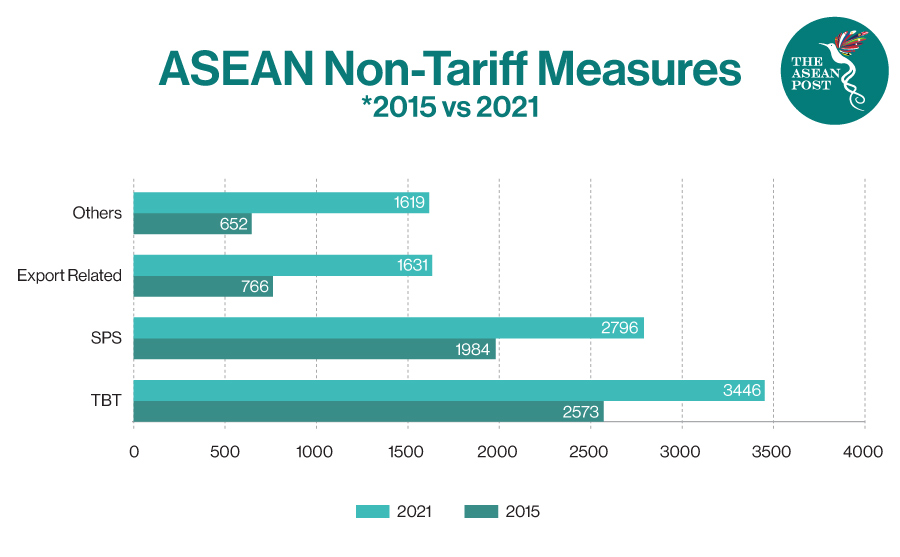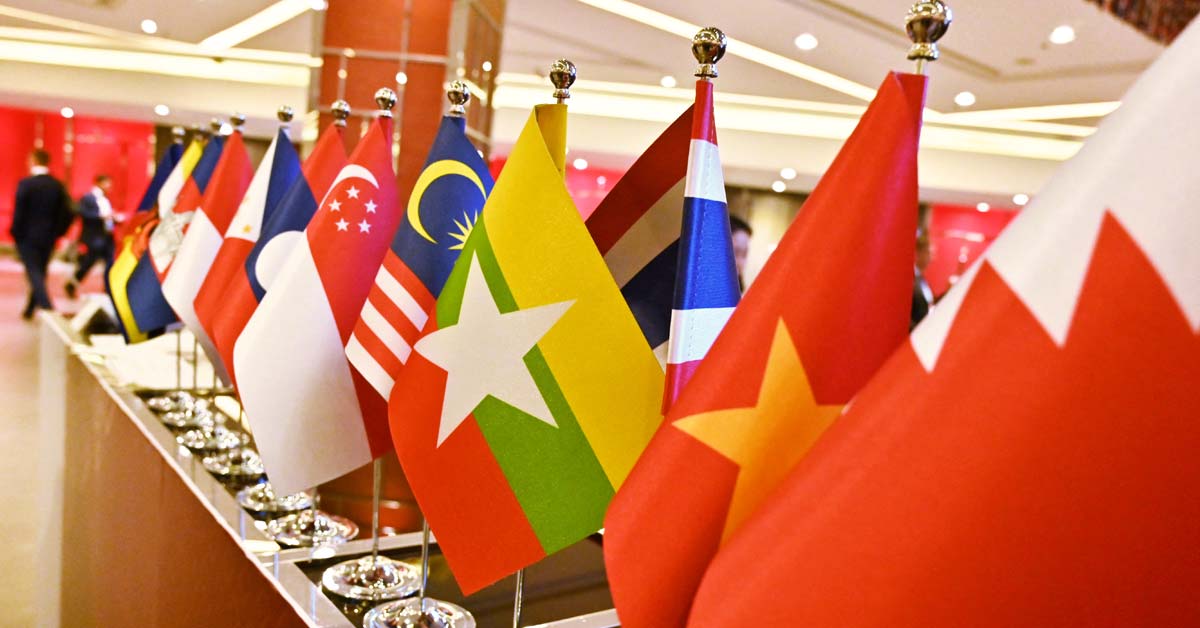ASEAN has been pursuing an ambitious plan for regional economic integration for almost 15 years, ever since the publication of the first AEC Blueprint in November 2007. A key tenet of the ASEAN Economic Community is to make ASEAN a huge and dynamic single market and production base, through harmonising standards and removing, both tariffs and non-tariff barriers to intra-ASEAN trade.
Whilst there has been excellent progress on the removal of tariffs, non-tariff barriers to trade have increased over the years. Despite repeated acknowledgement from the Leaders and ASEAN Economic Ministers in various Blueprints, Agreements, Master Plans, and Work Plans of the need to eliminate non-tariff barriers, since 2015 there has been a close to 60 percent increase in non-tariff measures.
Though almost unheralded, at the most recent meeting of ASEAN Economic Ministers (AEM) in September, there was a sign that ASEAN may now be ready to tackle non-tariff barriers (NTBs) seriously. The Ministers signed off on a “Non-Tariff Measures Cost Effectiveness Toolkit”, the number one priority economic deliverable for Brunei during its chairmanship of ASEAN this year. The Toolkit has been designed specifically for the region to enable the Member States of ASEAN to examine existing non-tariff measures (NTMs) and identify which of those are, in fact, NTBs.
In their joint statement after the AEM meeting in September, the Ministers said of the NTM Toolkit that it “would encourage the adoption of good regulatory practices of simplifying import requirements and procedures, to ultimately boost export in the region.”
They also “underscored the importance of the Toolkit as a guideline to manage NTMs affecting the smooth flow of goods within the region and encouraged AMS (ASEAN Member States) to make full use of this Toolkit.”

Not all NTMs are NTBs. For example, those created for genuine public health and safety reasons. NTBs are NTMs that deliberately distort markets and increase costs for producers and consumers. They take various forms: complex bureaucracy, discriminatory permissions, licences, quotas, and charges.
Examples of NTBs can be found in every sector, from automotive to food, from pharmaceuticals and medical products to electronics, and from household appliances to toys. They range in type from quantity control restrictions (i.e. limits on the volumes of imports), to price controls (such as minimum import prices), to non-automatic licences for imports and spurious application of sanitary and phytosanitary measures.
Often designed to protect domestic industry from competition, NTBs have the effect of limiting innovation, insulating domestic industries from the need to modernise their products and services, and also holding back investment. Thus, NTBs work to the long-term detriment of the imposing country, its’ industry and its’ consumers.
In ASEAN individual nations’, NTBs also risk regional competitiveness and job creation as they discourage investments in developing regional supply chains to serve global export markets. In some cases, (like auto safety standards or food labelling), NTBs could actually harm public safety by delaying new safer technologies.
The new Toolkit, however, holds the potential for hope.
Whilst the use of the Toolkit is not compulsory, nor is reporting on its use, we do look forward to the AMS taking this chance to show their true commitment to the removal of NTBs in the region by applying the Toolkit and reporting regularly on the output.
While the world waits for COP26 in Glasgow and a ‘Race to Zero’ in carbon emissions, we hope the ASEAN member states will commence a ‘race to zero’ for NTBs starting this year.
It will be a long road to full NTB elimination, but the rewards along the journey will be great - more intra-ASEAN trade, greater competitiveness, and more sustainable recovery from the pandemic.
A ‘race to zero’ in NTBs is what ASEAN needs to fulfil its potential as a dynamic and progressive trading bloc and to create the jobs of the future.
The views expressed in this article are the author’s own and do not necessarily reflect those of The ASEAN Post.

